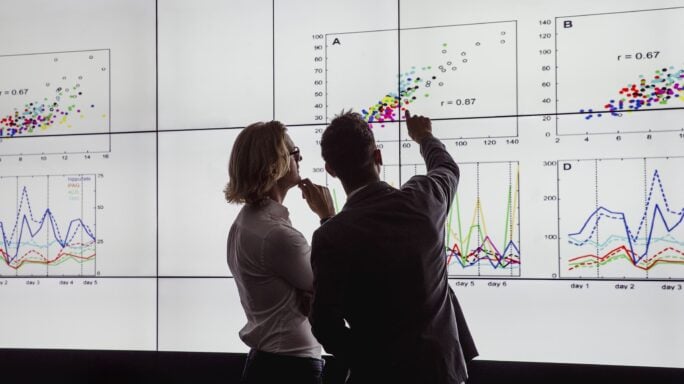The CPA of the future: How technology will be a key qualification
The AICPA is considering redesigning CPA learning and licensure so that accountants can work in a technologically-driven environment. Here's what it means.

The American Institute of CPAs (AICPA) is considering redesigning CPA learning and licensure so that accountants can operate in what it calls “an increasingly technologically-driven environment.”
As one example, it mentions that data analysis expertise could become a requirement in future CPA examinations. To identify other areas of interest, AICPA has created a working group with the National Association of State Boards of Accountancy (NASBA) as well as representatives from state CPA societies, CPA firms of all sizes, and the academic community.
“Based on what we’ve heard, there is no question that the profession is ready to take action to capitalize on the opportunities that technology presents to us,” said Susan S. Coffey (CPA, CGMA), who is AICPA executive vice president for public practice.
“Technological innovation and changing client demands are rapidly transforming the skills accountants need to thrive,” added Working Group Chair Cathy Allen (CPA), who is a managing member of Audit Conduct LLC and is on NASBA’s Board of Directors. “Working Group members recognize the critical role of technological and data analysis expertise needed in firms and businesses today.”
In the Sage Practice of Now report that includes input from more than 3,000 accountants around the world, 39% of accountants describe themselves as early adopters of technology. The top reasons for adopting new technology are time and efficiency savings (64% of accountants) and improving service quality (44%).
None of this is any surprise. For the last 50 years or so the accounting profession has been explicitly tied to the boom in technology. With the personal calculator, spreadsheets and now cloud computing, accountancy has always been among the first industries to embrace and exploit new technology.
According to recent research coming out of the Maryland Association of CPAs that surveyed 1,000 CPAs and finance and accounting professionals, accountants believe artificial intelligence, machine learning, and cognitive computing are next on the technological horizon. Big data and high-speed data analytics were listed second.
For any CPA or practice, it’s no longer helpful to consider technology as something separate from the way work is done. Accounting and technology are two sides of the same coin.
3 Technologies transforming the accounting profession
An accounting professional's guide to the workplace of today and tomorrow.

Here are three steps you must take now to stay ahead of the technological curve.
1. Get savvy
In short, it’s becoming a professional priority to keep up with technological trends so that no new technological announcement—from the AICPA as part of its new CPA licensure, or otherwise—catches you unawares.
Keeping up with information sources such as this blog is one way of doing so, as is ensuring you monitor communications from authorities such as AICPA or your state CPA board. But more than this, you need to ensure you have a philosophy and outlook that keeps you and your practice at the forefront of technology.
Jody Padar, CEO of New Vision CPA group and author of The Radical CPA: New Rules for the Future-Ready Firm explains: “If you look at things such as mobile, you know around five years ago nobody cared about using a phone, but now we are all living our lives connected to our apps.”
“However as accountants we haven’t necessarily changed our business models to deal with the evolution of technology. So the idea of a future-proof firm to me is a practice that fundamentally, holistically rethinks its business models so we’re able to keep up with change. So when a new app, or a new bot comes out, we can fluidly move with the changes that are happening around us.”
2. Grab the low-hanging fruit
Although it’s not yet clear what technologies the AICPA are considering, it’s widely known within the industry and among clients that technologies such as cloud computing and mobile are revolutionary when it comes to accounting. if it hasn’t already, your practice needs to make the switch to these as soon as possible.
Why? It’s because cloud computing is the enabler for all technologies that follow. If you or your clients want to embrace 24/7 real-time accounting across mobile platforms, then it’s simply not possible without the cloud. If you want to embrace artificial intelligence then, again, you can’t do it without the cloud because it’s the only way to access the massive amounts of data that technologies like machine learning require to be effective.
In effect, the cloud is the bottom of a technological evolutionary tree out of which everything else grows. Above all, you don’t want to be in a situation where data analysis—as one example—becomes a mandated part of a CPA’s role, yet your practice hasn’t even converted to the cloud technology that makes it possible. A slow and steady journey when introducing new technology is surely better than facing a vertical curve of updating all your systems and processes all at once.
How do you convert a practice to cloud computing? Here’s a quick A-B-C plan to get you started:
A. Assign an owner
Designate a single person to “own” the plan. Even if the implementation stages might be managed or handled by others, having a single point of contact who knows what’s happening will ensure the smoothest possible roll-out.
B. Be prepared
It will probably be necessary to split out implementation into several phases as well as individual plans for certain parts of the roll-out. If you use project management software already within your practice you can use this software to successfully deploy your plan.
You might also want to create one or more Gantt charts that list milestones. Microsoft Excel comes with several ready-made templates to create Gantt charts.
C. Create touch points
Agree what the sign-off processes and touch points will be. Identify the volumes you are working with in terms of clients, and what tools you have at your disposal to support this.
3. Start training and qualifying now
In Sage research, we found that 57% of accountancy practices are embracing online and mobile technologies, and training staff to use them. That’s certainly encouraging but that figure needs to be much higher, and the 43% of firms on the flip side of that coin are running the risk of irrelevance in the eyes of clients.
Training in technology needs to start immediately in practices that have previously ignored it. Not only that but it needs be considered an ongoing process.
Training isn’t merely about getting yourself or your staff up to speed, of course. Offering training and qualifications are powerful incentives when recruiting into your firm, and can also help keep staff within the business.
Often finding the training can be as easily as speaking to your software vendor, and at the most basic level things like webinars or white papers might not even have a cost attached other than registering with the software vendor.
3 Technologies transforming the accounting profession
An accounting professional's guide to the workplace of today and tomorrow.







Ask the author a question or share your advice